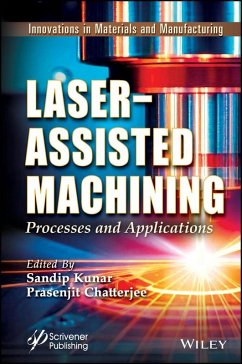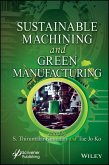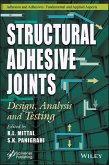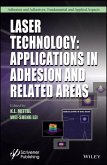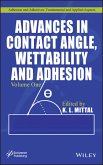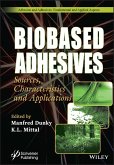LASER-ASSISTED MACHINING This unique book develops exhaustive engineering perceptions of different laser-assisted techniques, reviews the engineering context of different laser fabrication techniques, and describes the application of laser-assisted fabrication techniques. Lasers are essential in the area of material processing because they can produce coherent beams with little divergence. The fabrication process known as surface cladding includes joining (soldering, welding), material removal (laser-aided drilling, cutting, etc.), deformation (extrusion, bending), and material addition. Some remarkable advantages of laser-assisted material development include faster processing rates and preservation of essential alloying components. However, the lack of widespread understanding of various material phenomena and how laser parameters affect them prevents the technology from being widely accepted on an industrial scale. Among the subjects Laser-Assisted Machining covers include high-powered lasers in material processing applications, laser-based joining of metallic and non-metallic materials, direct laser cladding, laser surface processing, laser micro and nano processing, emerging laser materials processing techniques, solid-state lasers, laser cutting, drilling and piercing, laser welding, laser bending or forming, laser cleaning, laser automation and in-process sensing, femtosecond laser micromachining, laser-assisted micro-milling/grinding, laser-assisted jet electrochemical micro-machining, laser-assisted water jet micro-machining, hybrid laser-electrochemical micromachining process, quill and nonreciprocal ultrafast laser writing, laser surface engineering, ultrashort pulsed laser surface texturing, laser interference patterning systems, laser interference lithography, laser-guided discharge texturing. Audience The book will be used by researchers in the fields of manufacturing technology and materials science as well as engineers and high-level technicians for a better understanding of various innovative and novel techniques to cope with the need of micromachining, as well as microfabrication industries for successful implementation of microproduct manufacturing.
Dieser Download kann aus rechtlichen Gründen nur mit Rechnungsadresse in A, B, BG, CY, CZ, D, DK, EW, E, FIN, F, GR, HR, H, IRL, I, LT, L, LR, M, NL, PL, P, R, S, SLO, SK ausgeliefert werden.

